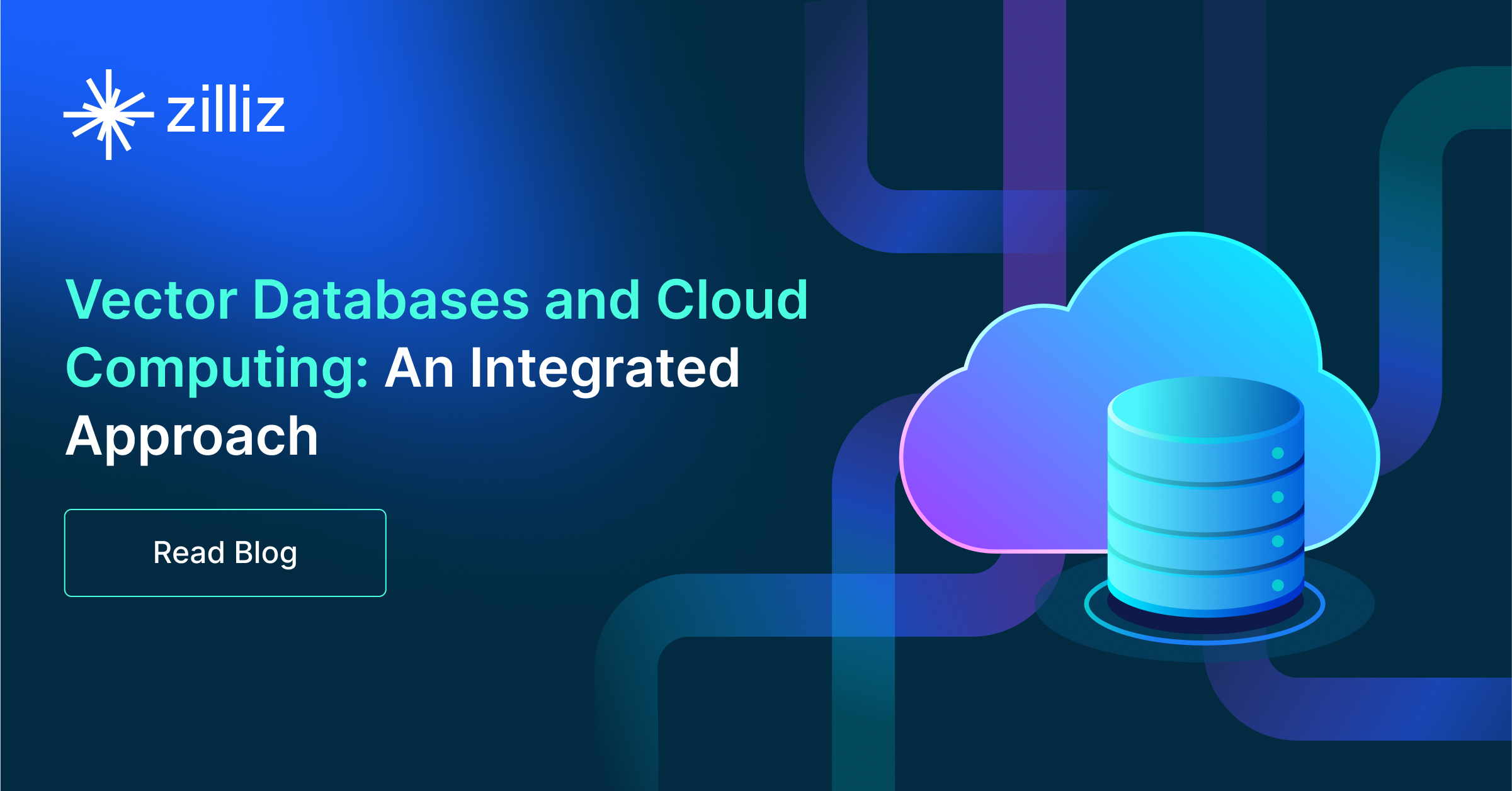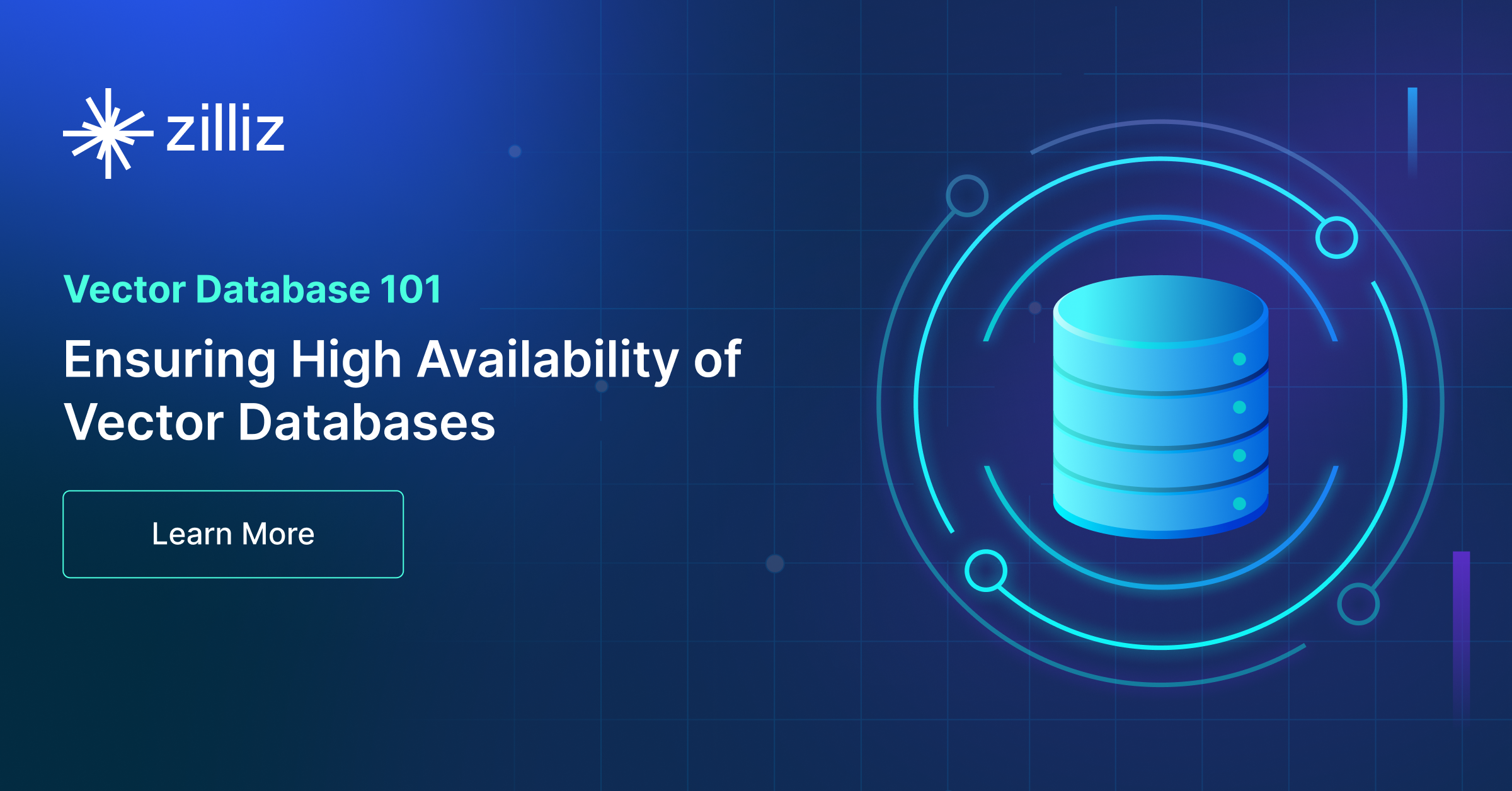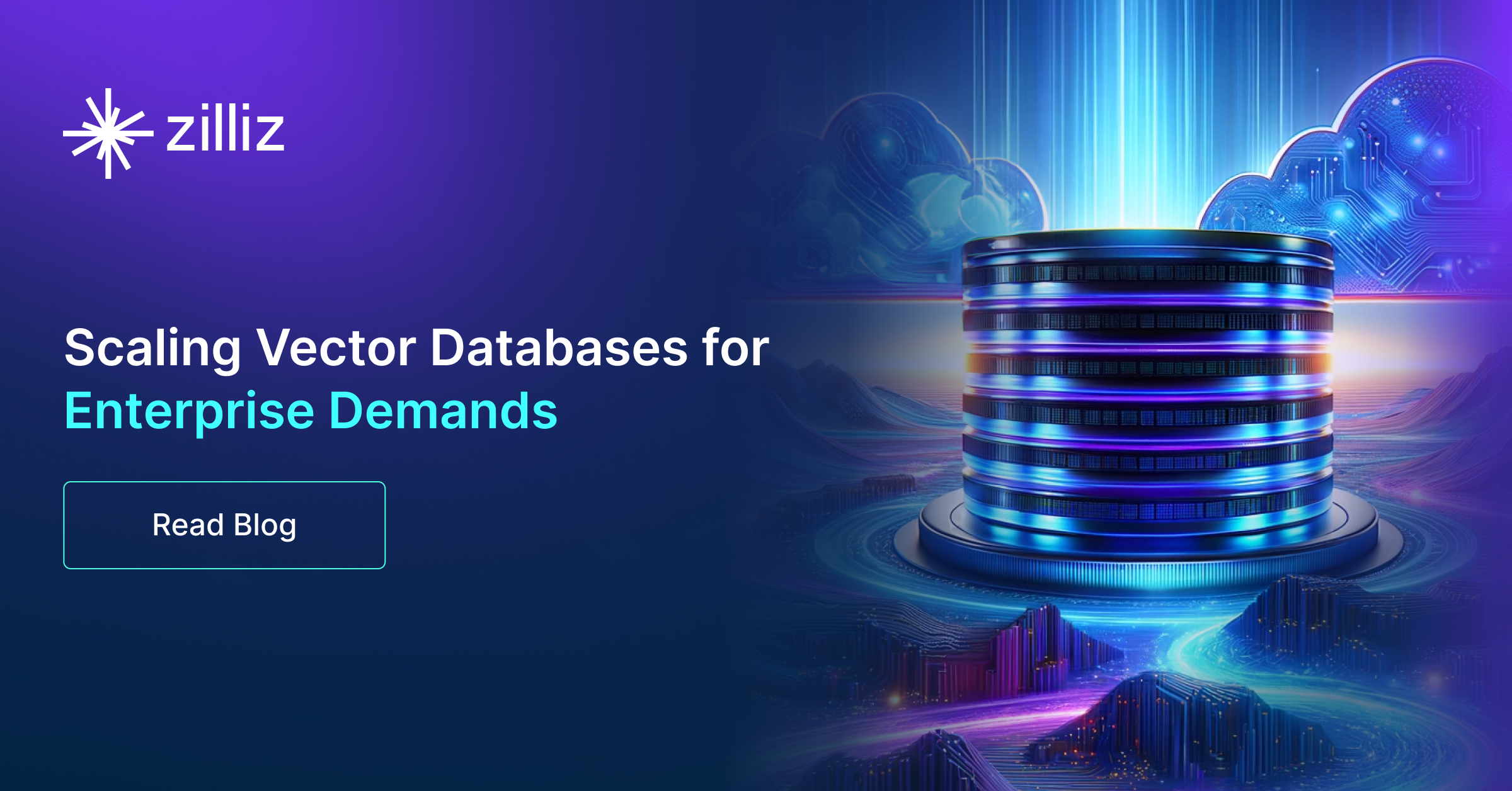Deploying Vector Databases in Multi-Cloud Environments
Multi-cloud deployment has become increasingly popular for services looking for as much uptime as possible, with organizations leveraging multiple cloud providers to optimize performance, reliability, and cost-efficiency.
Read the entire series
- Safeguard Data Integrity: Backup and Recovery in Vector Databases
- Integrating Vector Databases with Cloud Computing: A Strategic Solution to Modern Data Challenges
- Maintaining Data Integrity in Vector Databases
- Deploying Vector Databases in Multi-Cloud Environments
- Ensuring High Availability of Vector Databases
- Scaling Vector Databases to Meet Enterprise Demands
- Getting Started with Voyager: Spotify's Nearest-Neighbor Search Library
As we move further into 2024, adopting multi-cloud deployment strategies continues to rise, offering organizations improved flexibility, scalability, and cost-effectiveness. In this multi-cloud deployment guide, we will explore the trends, strategies, and best practices associated with deploying vector databases in a multi-cloud environment, specifically focusing on Milvus and Zilliz Cloud. By understanding multi-cloud deployment trends and following our multi-cloud deployment tips and best practices, you'll be well-prepared to harness the full potential of your data and power your AI and machine learning applications.
One of the clear benefits of multi-cloud deployments is high availability. As such, multi-cloud deployment has become increasingly popular for services looking for as much uptime as possible, with organizations leveraging multiple cloud providers to optimize performance, reliability, and cost-efficiency. In 2024, we can expect even greater adoption of multi-cloud vector databases as businesses seek to maximize the benefits of semantic search, recommendation, and RAG while minimizing any potential downtime. Zilliz, being available in multiple cloud regions, can help facilitate this transition.
Multi-Cloud Deployment Benefits
Deploying vector databases like Milvus and Zilliz in a multi-cloud environment offers several benefits. These platforms, with their unique features, are particularly well-suited for managing vector databases in a multi-cloud environment:
- Improved Flexibility and Scalability: Utilizing multiple cloud providers allows organizations to select the best-suited services and infrastructure for different components of their vector database system, ensuring optimal performance and cost-effectiveness. Zilliz, as a fully managed service, can simplify this process by providing a seamless, scalable experience.
- Enhanced Reliability and Availability: By deploying vector databases across multiple cloud platforms, businesses can mitigate the risk of service interruptions or vendor lock-in, ensuring uninterrupted access to critical data and applications. Zilliz, as a managed service, takes this a step further, providing a reliable and fully managed solution that enhances availability.
- Cost Optimization: Leveraging a multi-cloud strategy enables organizations to take advantage of the competitive pricing and unique offerings of different cloud providers, helping to reduce operational costs and maximize the return on investment. Zilliz can help by offering a cost-effective and scalable solution for managing vector databases in a multi-cloud environment.
Multi-Cloud Deployment Strategies
When considering a multi-cloud deployment for vector databases, it's essential to evaluate various strategies and select the approach that best aligns with your organization's requirements:
- Distributed Data Management: Distribute data across multiple cloud providers to ensure data availability and resilience, enable localized data processing, and reduce latency. Zilliz, with its cloud-native architecture, can facilitate this process by enabling seamless data distribution and synchronization.
- Hybrid Cloud Strategy: Combine public and private cloud platforms to achieve an optimal balance between cost, performance, and security. By integrating Milvus and Zilliz into your hybrid cloud environment, you can benefit from the performance and scalability of public clouds while maintaining the control and security of private clouds.
- Cloud-Native Application Development: Develop applications specifically designed to operate in cloud environments, making deployment and management easier across multiple cloud providers. With Milvus and Zilliz, you can leverage their cloud-native capabilities to build and deploy powerful vector database applications that seamlessly adapt to different cloud platforms.
Milvus offers a feature known as change data capture (CDC) to facilitate this. With CDC, all changes to the database (except for bulk inserts) are replicated and copied to a separate database. This ensures real-time data synchronization across multiple cloud providers, guaranteeing data consistency and availability, a significant advantage for your cloud-native applications.
Multi-Cloud Deployment Best Practices
To ensure successful deployment of vector databases in a multi-cloud environment, follow these best practices:
- Selecting the Right Cloud Providers: Carefully evaluate various cloud platforms' capabilities, performance, and costs to identify the most suitable providers for your vector database system. Zilliz, as a fully managed service, can simplify this process by offering seamless integration with AWS, Google Cloud, and Microsoft Azure.
- Optimizing Network Connectivity: Ensure your multi-cloud infrastructure provides low-latency, high-bandwidth connectivity between cloud platforms to enable efficient data transfer and synchronization. Zilliz can help facilitate this connectivity by providing a managed service with built-in networking optimizations.
- Implementing Robust Data Management Strategies: Develop comprehensive data management policies and procedures to ensure consistent data synchronization, security, and regulatory compliance. Zilliz, as a fully managed service, can simplify this process by providing robust data management features, such as automatic data backups and replication.
Multi-Cloud Deployment Comparison
While multi-cloud deployment offers numerous advantages, it's important to consider the potential challenges and drawbacks.
Comparing multi-cloud deployment with single-cloud alternatives can help you decide the best strategy for your organization's needs. Some factors to consider in this comparison include:
- Cost: While multi-cloud deployment can help optimize costs by leveraging the competitive pricing of different cloud providers, it may also introduce additional expenses related to data synchronization, security, and performance optimization. Single-cloud deployments may offer more predictable pricing but may lack the cost flexibility of multi-cloud strategies.
- Performance: Multi-cloud deployments can improve performance by allowing organizations to select the best-suited cloud services for different components of their vector database system. However, achieving optimal performance across multiple cloud platforms may require more complex optimization than single-cloud deployments.
- Reliability and Availability: Deploying vector databases across multiple cloud providers can enhance reliability and availability by mitigating the risk of service interruptions or vendor lock-in. Single-cloud deployments may be more susceptible to downtime or performance issues related to a specific cloud provider.
Wrapping up
Multi-cloud vector database deployments will gain significant momentum in 2024 as organizations seek to put more and more vector database use cases into production. You can effectively deploy vector databases like Milvus and Zilliz in a multi-cloud environment by understanding multi-cloud deployment trends, strategies, and best practices.
Leveraging open-source solutions like Milvus and managed services like Zilliz can help businesses harness the full potential of their data and power their AI and machine-learning applications. With Zilliz's fully managed service and seamless integration with leading cloud providers, organizations can simplify deployment, optimize network connectivity, and implement robust data management strategies.
While multi-cloud deployment presents its own challenges, such as data synchronization, security concerns, performance optimization, and cost management, following best practices and leveraging tools like Milvus and Zilliz can help organizations navigate these issues. By carefully selecting cloud providers, optimizing network connectivity, implementing robust data management strategies, and continuously monitoring and fine-tuning performance, businesses can successfully deploy vector databases like Milvus and Zilliz in a multi-cloud environment and capitalize on the benefits of cloud computing.
- Multi-Cloud Deployment Benefits
- Multi-Cloud Deployment Strategies
- Multi-Cloud Deployment Best Practices
- Multi-Cloud Deployment Comparison
- Wrapping up
Content
Start Free, Scale Easily
Try the fully-managed vector database built for your GenAI applications.
Try Zilliz Cloud for FreeKeep Reading

Integrating Vector Databases with Cloud Computing: A Strategic Solution to Modern Data Challenges
Integrating vector databases and cloud computing creates a powerful infrastructure that significantly enhances the management of large-scale, complex data in AI and machine learning.

Ensuring High Availability of Vector Databases
Ensuring high availability is crucial for the operation of vector databases, especially in applications where downtime translates directly into lost productivity and revenue.

Scaling Vector Databases to Meet Enterprise Demands
In this blog, we will explore the concept of database scalability and unravel Milvus's scaling capability. We will also introduce its scalability techniques and explore how they pave the way for unparalleled performance and innovation in unstructured data management.
